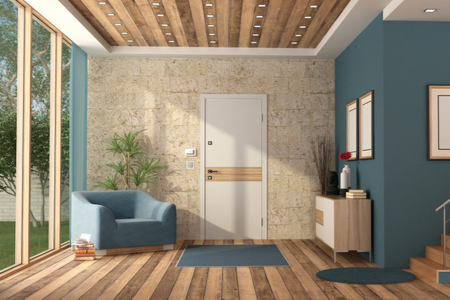Tips for Making Your Home and Lifestyle More Energy Efficient
-1.webp?width=1750&height=276&name=Education_Online%20(1)-1.webp)
There are a couple of reasons for making your home more energy efficient. First, you can reduce your impact on the environment. And you'll also lower your monthly bills since you won't be using as much. Luckily, there are several ways to make better choices.
Consider Furthering Your Education Online
One way of making your lifestyle more energy-efficient in general is by doing more things online instead of driving. Whether it's working from home, attending online meetings, or even furthering your education, the internet offers a way to carry out a range of tasks efficiently. One of the benefits of things like online education is that you aren't using as much gas or causing air pollution. And attending school online means you won't be contributing to traffic jams, freeing up more of your time. While you might not be able to go online to complete a degree requiring many hours in the lab, you can still get a degree in one of many fields. When it comes to paying for your education, consider getting a student loan from a private lender to fast-track your success without the worry of the high cost of tuition.
Cooling and Heating the Home Better
Much energy goes toward cooling or heating. But you can reduce high energy bills by looking for alternatives such as ceiling fans. By turning on a fan, you can turn up the air conditioning a few degrees and still stay relatively comfortable. It is also a good idea to replace the air filters often. If the filter is clogged, the appliance will need to work harder to move the same amount of air around. You could look into a programmable thermostat as well. They let you turn down the appliances when you are not at home. And you can turn them down at night as well. The cost savings from these devices can be significant, depending on your climate.
Picking the Right Devices and Appliances
Electronics and appliances make up much of your energy bill, you'll want to reduce their use whenever possible. If you design a kitchen, try to avoid placing freezers or fridges near heat-generating devices, such as dishwashers or stoves. When the colder ones are exposed to warmer temperatures, they will need to use more energy to keep the area cool. When not in use, shut down your computer. If you need to leave them on, it is best to turn off the monitors. They can use up more energy than you suspect. But laptops often use less energy than full-size desktops do.
Putting Daylighting Around the Home

Instead of turning on artificial light on a bright day, consider using daylighting. It involves placing natural light around the house to keep the interior well illuminated. You could install skylights using double-pane glass to prevent energy loss inside. Make sure that the installer adds sufficient flashing to avoid leaks during rain. You could also use clerestory windows. These are wide, short windows high on your walls. Since they are so high up, the roof's overhang protects them from the sun, but they still allow daylight inside.

Ravindra Ambegaonkar
Ravindra, the Marketing Manager at NY Engineers, holds an MBA from Staffordshire University and has helped us grow as a leading MEP engineering firm in the USA
Join 15,000+ Fellow Architects and Contractors
Get expert engineering tips straight to your inbox. Subscribe to the NY Engineers Blog below.
